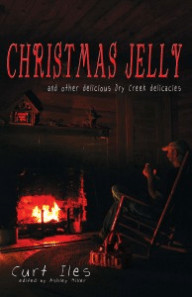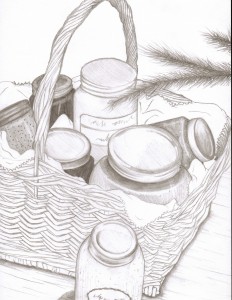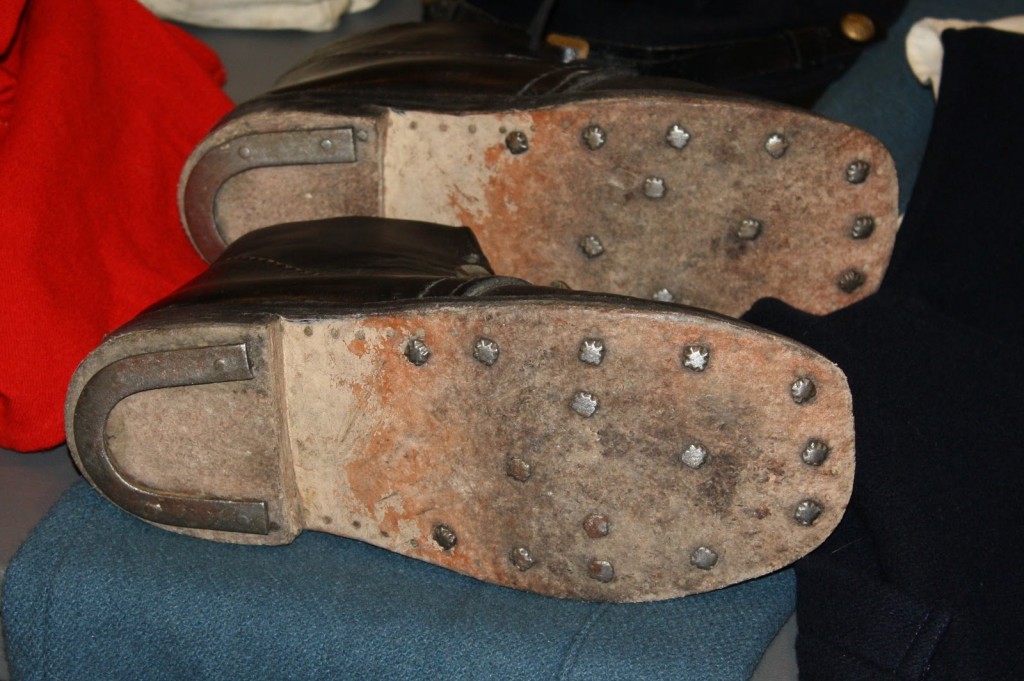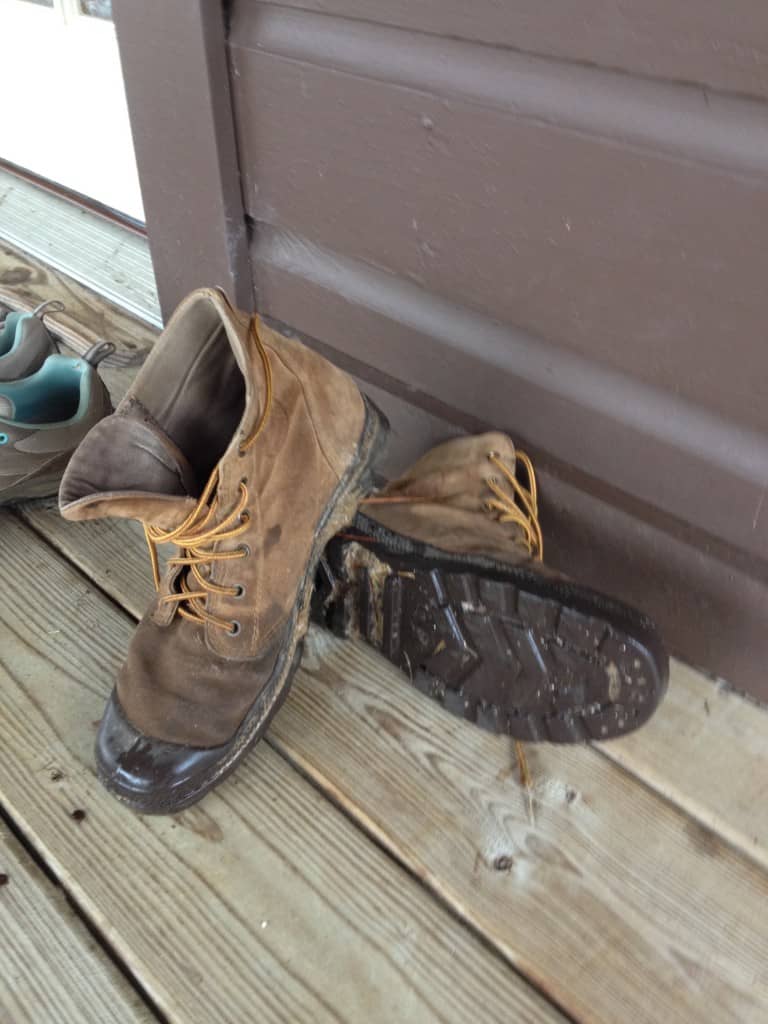
From now until New Year’s Day, we’ll be featuring stories from our short story collection, Christmas Jelly. My prayer is that you and your family will enjoy a wonderful Christmas, and you’ll feel the personal presence of Jesus, the King of all Kings.
DECEMBER 1
Chapter 1
Christmas Jelly
“The only true gift is a portion of yourself.” -Ralph Waldo Emerson
Of all my Christmas memories and traditions, Christmas jelly is one of my favorites. Each year I receive this special gift from a very special lady in my life. Before I share what Christmas jelly is, let me share about the special person who gives it each year.
Eleanor Andrews is my neighbor in Dry Creek. For all of my life, she has lived in the same house along Highway 113. Her house is easy to spot as it has the prettiest yard in our community. Her beautiful garden, flowers, and shrubs are examples of her love of gardening.
However, Mrs. Andrews is more than just my neighbor and a lover of flowers. She is also my all-time favorite teacher. Mrs. Andrews taught fifth grade at Dry Creek High School and later at East Beauregard High. She taught practically every young person in Dry Creek for a period of a quarter century.
Now Eleanor Andrews was from the “Old School.” She was stern and took no gruff or lip off any student. Everything was rigid and “down the line” in her classroom. In her class, there was no doubt that she was captain of the ship. She possessed a stare (made complete with her tongue tucked firmly in her cheek) that would stop a charging grizzly bear in its tracks.
Her reputation preceded her, and she was just as strict as the older kids on the bus had described her. Sitting in her fifth-grade class, I also saw something else: Beneath that gruff exterior were warm smiling eyes. She loved watching students learn and leading young people into new knowledge. During that year, 1967, she became my favorite teacher. Now over thirty years later, she still is.
Let me get back to that Christmas jelly. Eleanor Andrews has been retired for many years and is much older and frailer than when she ruled the fifth grade at East Beauregard. Because of her health, she doesn’t venture out much anymore. She lives alone in her house surrounded by her flowers and memories of a life filled with teaching and touching lives.
Each year a few weeks before Christmas I receive a phone call from Mrs. Andrews. She tells me “to drop by her house.” I know that the best Christmas present of the season is now complete- Christmas jelly is ready.
Before going I cut one of the Christmas trees from my farm. I’ve already tagged it weeks earlier. I have carefully chosen one that will meet her exacting standards. After loading this tree in my truck, I nervously drive to her home. I hope she will approve of my tree. Once again I feel as if I’m in the fifth grade waiting to hand in an important assignment.
Entering her living room, I’m greeted with that special smile I’ve known over the years. Always when I’m in her presence she makes me feel as if I’m the most important person in the world- That’s why she’s always been my favorite teacher.
Into my arms, she thrusts a basket of eight jars- all filled with homemade jelly. There are all of my favorites- muscadine, mayhall, even crabapple. Included are several jars of hot pepper jelly, and to top it all off, a Ziploc bag of chocolate “Martha Washington’s” sits on top of the basket.
I look at this assortment of homemade jelly and my mouth waters thinking about all the biscuits it will top off during the coming year. Oh, the joys of homemade jelly. As Mrs. Andrews happily examines her Christmas tree, she insists on paying for it. Laughing I say, “No way, the best deal I ever make each year is trading a tree for the best home- made jelly in Dry Creek.”
After visiting for a while, I leave with my armload of jelly jars. As I get in my truck, I think about the art of giving. Emerson said it well when he stated, “The only true gift is a portion of yourself.” As I look at the colorful decorated jars of jelly, I’m once again reminded of what Christmas is truly about. It is all about giving- Giving of ourselves and sharing what we have. I’m so glad I live in a place where gifts such as Christmas jelly abound.
Merry Christmas.
Curt Iles
If enjoyed this story, you can listen to the audio version here.


DECEMBER 2
Chapter 2
My Grandpas’ Boots
“My Grandpas’* Boots” is a fictional short story that had been mulling around in my brain for a long time.
Personally, it’s one of my favorite stories. A story about forgiveness, generosity, and finding common ground.
Enjoy!
*After you finish the story, you’ll realize the apostrophe in Grandpas’ is correctly placed.
“Son, I notice you’re scowling at my scuffed boots. Like me, they’ve been around a while and have quite a story to tell. You’ll understand why I wear them proudly when I finish their tale.”
These boots are six years older than me, and I’m almost seventy. Their history goes back to the years after the Civil War. That war was hard on my hometown of Alexandria, Louisiana. General Banks and his retreating Union army left behind smoldering ruins in the spring of 1864.
My grandfather, Abram B. Terry, wasn’t there. He was a prisoner of war in a New York Union prison. When the war ended, he returned to Alexandria and the destruction he encountered deepened the bitterness he felt toward all things Yankee.
We called Grandpa Terry “Pops.” His only son, my father, was seven when Pops limped home from the war. He’d lost his left leg and replaced it with a stout dogwood crutch, and a heart that was harder than the hickory peg leg he now wore.
Pop’s full name was Abraham B. Terry. His first act on returning from the war was going to the courthouse and changing it to Abram B. Terry. He didn’t want any name that linked him with Lincoln, whom he personally blamed for the war.
# # #
Seventeen years after the end of the war—in the year 1882—Pops was still angry about it and the disaster it’d brought to the Red River cotton country. He disdainfully referred to the previous Reconstruction years as “Deconstruction.”
However, an event happened in the cold weeks before Christmas that year that changed his heart and our family’s destiny.
In the midst of this post-war economic vacuum, several Unionists bravely arrived in Alexandria. These so-called “carpetbaggers” were treated with scorn and suspicion.
Pop’s only son—my daddy—was now twenty-three and still single. Father and son operated a sawmill south of town. On this fateful day in December 1882, the two of them were going to the bank.
Pops, seeing a man wearing a faded Union greatcoat, said, “Hey Bluecoat, have you come back to see if there’s anything you didn’t burn the first time?”
The man, who was sitting at a checkerboard balanced on a whiskey keg, looked up with a disarming smile. “I don’t want to burn nothing. I might catch fire, too.” He lifted his right pants leg, revealing a wooden peg.
Pops squinted. “Where’d you lose that?”
“One of your snipers got it on the last day at Vicksburg. They say I was the final casualty.”
Pops leaned on his crutch revealing his own wooden leg. “Lost mine in ‘Pencil-vain-ya.’” He hobbled closer. “How far’s yours gone?”
“To the hip.”
Pops grimaced. “I guess I ought to be thankful for below the knee.”
“Mine started below the knee too, but Ol’ Sawbones just kept cutting.” Bluecoat winked. “Told him I’d shoot him if he went any higher.”
“Bluecoat, you lost your right laig.”
The man moved his checkerboard. “And I see you left your left one somewhere up north, Reb.”
“Yep, they buried it in a stump hole at Gettysburg. Pickett’s Charge. July 3rd, 1863.”
Bluecoat grinned. “I guess we’re even then.” He scratched his long beard. “July 3rd. Was that a Friday?”
”It was.” Pops stared down the street. “A Friday that changed my life.”
Bluecoat said, “Friday, July 3rd. Same day I lost mine. If I remember—”
Pops interrupted, “I was crawling away from the stone wall when they captured me and sent me to one of y’all’s prison camps near Elmira, New York. That’s where I cooled my heels—or rather heel—for the rest of the dang war.”
“Like I said, we’re even.”
Pops’ face reddened. “I lost a lot more than a laig up there.”
“I’m sure you did.”
Pops placed his right foot beside the Yankee’s left one. “What size do you wear?”
“9-E.”
“Me, too.”
Bluecoat extended his hand. “My name’s Plott. Hiram Plott from Illinois. Just arrived down here with my wife and four daughters.”
Pops studied the open hand. “I don’t shake hands with the enemy.”
Bluecoat shrugged. “No hard feelings. It’s over on my end.”
Pops turned away. “It won’t ever be over on mine.”
That exchange should have ended any chance for friendship between the two one-legged Civil War veterans. But my father said in the coming weeks, Pops would faithfully stop by and harass Hiram Plott at the Yankee’s makeshift whiskey barrel office from where he watched the river traffic while buying and selling cotton.
My father remembered Christmas Eve of ‘82 as unusually cold for Louisiana. Hard times led to low expectations for presents. He never knew how his mother—my grandmother—did it. She scraped up enough money to buy a Christmas present for Pops: a brand new pair of riding boots to replace the patched and resoledone he’d been wearing since the war.
When Pops opened the box and saw the boots, he began crying, realizing the personal sacrifice that was behind this gift. Slipping the left boot on, he said, “Fits perfect.” Glancing down at the spare right boot, he tapped his wooden leg. “I‘ll keep that one in case my hickory stump sprouts a foot.”
What happened next is why this story is memorable. My grandfather called to my daddy, “Son, let’s go downtown.” Pops, carrying a tote sack over his shoulder, kept looking down at his new boot. “I can’t believe Elsie got me a new boot.”
In spite of the cold, Hiram Plott was at his usual spot, drinking coffee and staring across the checkerboard and the empty chair in front of it.
Pops unshouldered his sack. “Got something for you, Bluecoat.”
Plott glanced up as he moved a red checker. “Crown me.”
My grandfather pulled the new leather boot out of the sack, tossing it against the barrel and scattering the checkers. “See’uns, I can’t use the right one, thought you might could.”
Plott picked up the boot. “9-E, huh?”
“Yep.”
He slipped off his own muddy boot and replaced it with the new one. “Fits perfect. That’s right nice of you.”
Pops nodded at his own matching boot. “Christmas gift.”
Hiram Plott extended his hand. “I appreciate it.”
Pops didn’t hesitate in grasping the outstretched hand. “You’re welcome.”
Plott motioned to the empty chair. “Let me buy you a cup of coffee, Reb.”
Pops hobbled over. “You like checkers?”
“Like the air I breathe.”
Pops moved a black checker. “Loser pays for the next cup of coffee.”
On that Christmas Eve in 1882, the two veterans began their weekly Friday checker match that continued until the first one died in 1921. They never called each other by their given names; it was always “Bluecoat” and “Reb.”
They shared boots for the remainder of their lives, but that’s not all they shared. Eventually, they shared grandchildren. Hiram Plott’s oldest daughter eventually met my father, and as you can guess, Bluecoat’s daughter and Reb’s son fell in love.
They are my mother and father.
The two checker players were my two grandpas—Abram Terry and Hiram Plott.
To me, they were Pops and Gramps.
I’m their oldest grandchild, born three years after that first checker game.
I sat with them on many future checker Fridays and learned a great deal. They taught me much more than defending against double jumps and protecting your corner. I learned the valuable truth that two men with opposite views and backgrounds can find friendship if they have at least one thing in common.
In this case, a boot for the left and a boot for the right.
My Grandpas’ boots.

You can order a copy(s) at Christmas Jelly here.
Although My Grandpas’ Boots is fictional, Hiram Plott was my mother’s great-grandfather. This is one of my mom, Mary Iles’ most famous recipes.
Mary Plott Iles
Dry Creek Pecan Pie
“I was given a cookbook when Clayton and I married nearly sixty years ago. I’ve been baking pecan pies by this recipe for that long.”
½ c sugar
¼ c butter or margarine
1 c light corn syrup
¼ t salt
3 eggs
1 c pecans
1 recipe Plain pastry
Cream sugar and butter. Add syrup and salt. Beat well.
Beat in eggs, one at a time.
Add pecans. Pour into 9-inch pastry–lined pie pan. Bake in a moderate oven (350°) 1 hour and 10 minutes or until a knife comes out clean.
 Creekbank Stories Curt Iles, Storyteller
Creekbank Stories Curt Iles, Storyteller

curt this has always been one of my favorite stories as well.it reminds me of all the times ive been given something and it was given from the heart. may you and your family enjoy a blessed Christmas. oh yes i love the new book. keep them coming
Bill,
Thanks for your comments on A Good Place. God is really using it and I’m so thankful and humbled by that.